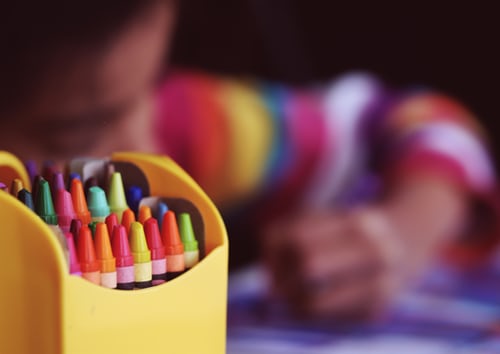IGCSE India( International General Certificate of Secondary Education)

IGCSE International General Certificate of Secondary Education (IGCSE) is an academically rigorous, internationally used, specialised, English language curriculum which is offered to students to prepare them for International Baccalaureate.
Developed by Cambridge International Examination (CIE) in 1988, IGCSE is a very popular English language curriculum. Over 10,000 schools in 160 countries are teaching the IGCSE syllabus.
The Cambridge IGCSE curriculum offers a variety of routes for learners with a wide range of abilities, including those whose first language is not English.
Cambridge IGCSE exams are conducted in the months of February (India only), May and October, and the results are released in May, August and January respectively. The exams are set by CIE, which is part of the Cambridge Assessment that also includes the OCR gcse examination board.
Currently, IGCSE is a two-year programme starting at the Class 9 level. A student who has done his/ her early schooling from any other board can join the IGCSE programme at the Class 9 level.
IGCSE is one of the most sought-after and recognised qualifications in the world. It develops and encourages vital educational skills, including oral skills, investigative skills, problem solving, team work, recall of knowledge, and initiative.
The IGCSE programme has worldwide status and credibility. In India the course is delivered in over 130 schools with the number expected to touch 600 by 2008. It is recognised by the Association of Indian Universities (AIU) as being at par with CBSE, ICSE, etc.
Worldwide, it is delivered in schools in over 140 countries and is recognised by colleges and universities everywhere, more so in the UK and other Commonwealth countries.
The IGCSE curriculum is balanced and lends an international perspective to studies. It also takes account of differing abilities of students.
IGCSE students can take advantage of the Cambridge Checkpoint, a diagnostic service comprising of standardised tests, that pin-points a student’s strengths and weaknesses in key curriculum areas.
Cambridge IGCSE exams are conducted in the months of February (India only), May and October, and the results are released in May, August and January respectively. The exams are set by CIE, which is part of the Cambridge Assessment that also includes the OCR gcse examination board.
There are over 70 subjects available at Cambridge IGCSE, including 30 languages, and schools can offer them in any combination. Cambridge IGCSE develops learner knowledge, understanding and skills in
Subject content
Applying knowledge and understanding to new as well as familiar situations
Intellectual enquiry
Flexibility and responsiveness to change
Working and communicating in English
Influencing outcomes
Cultural awareness.
Schools worldwide have been involved in the development of Cambridge IGCSE. The syllabuses are international in outlook, but retain a local relevance. They have been created specifically for an international student body and avoid cultural bias.
Find out more about Cambridge IGCSE subjects.
India Schools offer both Indian and International
1. CBSE: Central Board of Secondary Education
2. CISCE: Council for the Indian School Certificate Examinations (CISCE)
3. IB: International Baccalaureate
4. IGCSE: International General Certificate of Secondary Education (IGCSE) Cambridge University
5. State Board:State Government Recognized Board
Let’s consider each one of ther
A. CBSE Central Board of Secondary Education
A Board which follows universal pattern is the first choice for parents with transferable jobs.
Although CBSE and IGCSE are different boards, the education provided in both these boards have helped Indian students to gain good quality elementary education. … This syllabus includes education, language, teamwork, and analytical skills and emphasizes more on practical aspects of each subject than theoretical aspects.
Preschools curriculum in India

Many researches have shown that a brain of the child starts developing at a very early age. For instance, if your child is of the age one then about 70% of the brain has been developed and by the time they are three its 90%. It is during this time that genes interact with experience, providing a foundation, learning, behaviour, and health.
http://www.indiabestschools.com/e-learning-india/
Children who are enrolled in pPreschools have the ability to learn faster and more than one can comprehend. When talking about preschool curriculum, Kids has the most refined curriculum as it teaches enhancing communication skills such as expression through art and drama, theme based Concept time, math and language skill development, opportunities for fine and gross motor development and promoting cognitive development.Montessori, Waldroff , Reggio Amelia, Kindergarten, High scope method, are all few examples of child centred curriculum. In all these, Montessori stands out because of century old curriculum.
Montessori is scientifically proven and is accepted universally. All other curriculums have Montessori philosophy as their base even otherwise.
There are three types of curriculum: (1) explicit (stated curriculum), (2) hidden (unofficial curriculum), and (3) absent or null ( excluded curriculum).Preschool Curriculum is an accessible research synthesis of how and how much young children learn in the academic domains of oral language, literacy, mathematics, and science.
IGCSE homeschooling India

A large number of families who are homeschooling in India from Primary and Secondary age children right through to those studying for their IGCSEs and A Levels.
Your child can start their course at any time of the year. India is unique in that there are three possible examination sittings during the year in March, May/ June or October/ November.
This provides even greater flexibility to our students homeschooling in India. Exams can be taken at the British Council or at a school registered to accept Cambridge Examination candidates.
homeschooling in India is not illegal. But the problem is, there is RTE(Right to education) act which ensures that every child between the age limit of 6-14 years will get compulsory school education in India. On behalf of this act, there is a chance for the child line try to hunt you.
What is IGCSE Curriculum

The IGCSE ‘core’ curriculum consists of a First Language, Second Language, Mathematics, and one or more subjects in the area of science. English, Mathematics, and the Sciences are the IGCSE Core subjects. A student can also choose to study other subjects ranging from Social Sciences to Arts & Technology.